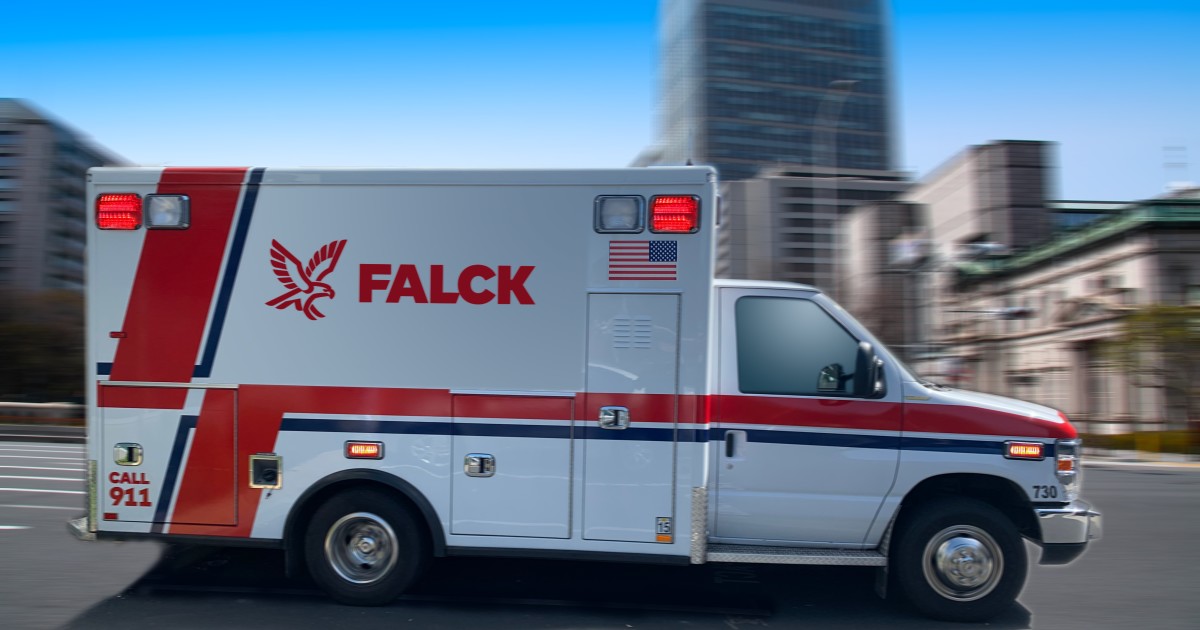San Diego will have a new ambulance provider for the first time in 23 years after the City Council voted 9-0 Tuesday to switch from American Medical Response to Falck, a Danish company that is the largest ambulance operator in the world.
The motivation for switching providers is Falck’s plan to put more ambulances on the road and boost response times in ethnically diverse and low-income neighborhoods south of state Route 94.
Critics say Falck has a history of overpromising and underdelivering, contending the company’s revenue estimates are too optimistic and predicting the city’s partnership with Falck will lead to chaos and disappointment.
Council members said they were persuaded to make the switch by a strong endorsement from Fire Chief Colin Stowell, who vowed to ensure Falck fulfills its promises to provide new equipment and meet response time goals.
The council also said it wouldn’t be prudent or fair to re-start the long process of considering a switch, which included evaluating over many months comprehensive proposals from Falck and the city’s current ambulance provider.
Councilwoman Monica Montgomery Steppe, chair of the council’s public safety committee, said she is confident Falck will serve San Diego more equitably.
“Residents must be confident that all areas of the city will be covered fairly,” she said.
Montgomery Steppe also said the new equipment provided by Falck, including 65 new ambulances, will alleviate morale problems city ambulance workers have been experiencing while working in older ambulances with outdated equipment.
Councilwoman Marni von Wilpert, while voting yes, criticized Falck for opposing labor unions in other cities where it provides ambulance service. She also told Chief Stowell she doubts whether the city’s contract with Falck is strong enough.
“I’m just worried we don’t have the legal tools in this contract to enforce a lot of these promises if they don’t do everything that you are very justifiably requiring them to do,” von Wilpert said.
Critics have speculated that if Falck doesn’t meet its revenue projections, the company will either reduce service, cut employee pay or ask the city to raise ambulance rates.
Matt Gallagher, Falck’s chief executive, said the company would fulfill its promises because the contract requires it and, perhaps more importantly, such moves would damage the company’s reputation.
“Falck is looking to grow in the U.S. and provide 9-1-1 services to great cities like San Diego,” he said. “We can only do that based on our reputation.”
Councilman Chris Cate reminded his colleagues that ambulance rates can’t go up without council approval, which he said would only happen if Falck could clearly justify it.
The council vote came after a five-hour public hearing during which nearly 200 people spoke for and against making the switch to Falck.
Many of the speakers in favor work for Falck in other cities, while many of the speakers opposed work for incumbent provider American Medical Response in San Diego.
The five-year contract requires Falck to provide 1,008 hours of daily ambulance service, a 20 percent increase from 840 hours now provided by AMR. AMR had proposed a more modest increase to 888 hours.
Falck’s proposal included roughly 10 to 14 more ambulances in operation each day.
The city’s annual fee from Falck would be about $9 million, down about 15 percent from the $10.6 million annual fee AMR has been paying.
In exchange for that payment, the city’s ambulance provider gets the opportunity to directly bill patients who receive ambulance care. In its proposal to the city, Falck projected it would receive nearly $75 million in annual revenue.
The deal also requires new equipment. In addition to 65 new ambulances – essentially replacing the entire fleet – the contract calls for new gurneys, cardiac monitors and compression devices. The city also would regain control of some of the office and storage space now occupied by AMR.
The switch was praised by Tony Sorci, head of the labor union representing the city’s ambulance workers, the San Diego Association of Prehospital Professionals.
“Our members are working in the worst working conditions we have seen in over 24 years,” he said. “We have done our due diligence and recognize their experience and the increase in level of service their proposal brings to the system and the enhancements to the working conditions and benefits of our workforce.”
Jesse Connor, president of the city’s firefighters labor union, said the city made the right move by respecting the process in place to allow rival companies to bid for ambulance services.
Community leaders representing disadvantaged groups also endorsed the switch.
“We are excited about Falck coming to town,” said Francine Maxwell, president of the local NAACP chapter. “We want to hear about racial equity, we want to hear about inclusion — Falck can deliver this.”
Ricardo Villa, leader of the county Hispanic Chamber of Commerce, agreed.
“Falck has proactively cultivated relationships with the community organizations in anticipation of taking over service in the city and will continue working closely with those who represent historically underserved communities,” he said.
The deal requires a six-month transition period where AMR will help Falck take over. Chief Stowell said he will give the council detailed updates during the transition.
Internationally, Falck provides ambulance service in Denmark, Sweden, Spain, Germany, Colombia and Australia.
Domestically, the company provides service in Oregon, Colorado, Michigan, Georgia, Mississippi, Massachusetts, New Hampshire, Maine and California — including Orange County and Alameda County.

